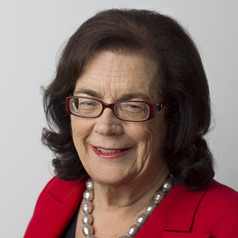By Michelle Grattan, University of Canberra
Liberal senator Bill Heffernan has had the last laugh on the serious question of security at Australia’s Parliament.
Earlier this year, security was slackened in a bid to save A$400,000. MPs’ staff and departmental officials were allowed to go into the building without being scanned.
Heffernan was outraged as what he saw at the laxity of the new arrangements and arrived at an estimates hearing in May with a piece of pipe and other paraphernalia to demonstrate you could get a bomb into the place.
Not long after, the old system of everybody being scanned returned.
Now Tony Abbott says that this month he was advised of “chatter” among terrorist networks about a potential attack on “government people and Parliament House has been specifically mentioned”. He had commissioned an urgent review and in future the Australian Federal Police – previously just in charge of security around the outside of the building – will have responsibility for inside too.
“There will be armed Australian Federal Police present in and around our national parliament at all times”, he said on Friday.
Maybe the “chatter” changes everything but it’s passing strange that Parliament House’s internal security could, within months, have gone from ripe for cuts, to requiring police with guns.
In the wake of Thursday’s dawn raids, which led to one man being charged with a terrorism-related offence, the government is “megaphoning” two messages about the threat within Australia.
It’s stressing the seriousness of the situation. A terrorist attack nearly happened, it’s saying. But it’s also urging that the best thing is for people to go about their business in the usual way.
The link it seeks to put between these two messages is: don’t worry, the government and the security agencies are looking after you.
Abbott is also emphasising that the raids and other anti-terrorism activity are not about “any particular religion or community”, but about combatting criminality.
At one level that’s obvious. But inevitably, the focus comes onto the Muslim community because that’s where the alleged extremists have come from.
This situation is going to take sensitive and skilled management. Preventing the growth of anti-Muslim feeling – the kind that saw vandals spray-paint “Evil” on a well-established far north Queensland mosque on Thursday night – will be a challenge. Apart from that, some Muslims may feel uncomfortable in the spotlight, for example if they come under strong pressure to do or say things publicly.
Richard Ackland, writing in the Guardian, believes: “This will be a real test to see that Australia’s peaceful multicultural cohesion is not hijacked.”
What’s hard to judge from the limited knowledge we have is whether the government and the authorities are applying proportionality in their actions.
More than 800 police and security officers were deployed in the raids, in what the police describe as a “show of force” on a scale not seen before.
Abbott declared that “the challenges that we face are more serious today than at any time in the past”.
That may indeed be true. But when he went on to say that “it is a serious situation when all you need to do to carry out a terrorist attack is to have a knife, an iPhone and a victim,” we should remember that sort of attack could have always been perpetrated (minus the phone). It’s the horrific images that we’ve seen of beheadings that make the threat of a knife attack so galvanising, and what’s also new and alarming is people talking about such attacks on our own streets.
A security alert often means that the priority a government gives to people’s rights – including the public’s right to know – becomes lower.
When acting AFP commissioner Andrew Colvin, appearing at a news conference with Abbott and NSW premier Mike Baird on Friday, refused (citing legal constraints) to tell journalists how many people were still being detained, Abbott delivered a little homily:
Winston Churchill used a famous phrase back in the 1926 general strike. He said: ‘I refuse to be impartial as between the fire brigade and the fire’. Now, you’re perfectly entitled to ask these questions but I think the vast majority of Australians are absolutely on the side, as they should be, of the police and the security services who are there to keep them safe
This, however, is to set up a false dichotomy, which should not be substituted for a more precise discussion about what can and should be made public.
While Labor is keeping the security issue a strictly non-partisan affair, both sides of politics are looking to next week’s Newspoll for a read out of its political impact.
Parliament is still to grapple with some of the budget gridlock, but the government hopes and can expect the attention will be elsewhere: in New York, on Abbott’s attendance at Barack Obama’s United Nations Security Council meeting on foreign fighters and on the PM’s address to the General Assembly.

Michelle Grattan does not work for, consult to, own shares in or receive funding from any company or organisation that would benefit from this article, and has no relevant affiliations.
This article was originally published on The Conversation.
Read the original article.
The post Parliament ramps up security, only months after scaling it back appeared first on Canberra CityNews.
